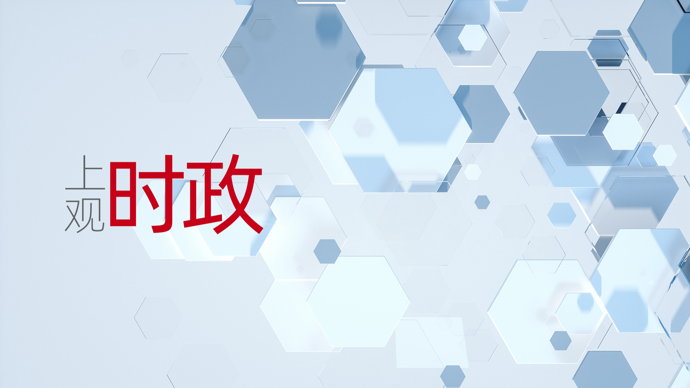"Not Surrender" Triggers Speculation On Revenge, And Ko Wen-je's Movements Have Become A Key Variable In Taiwan's Political Situation.
"Not Surrender" Triggers Speculation On Revenge, And Ko Wen-je's Movements Have Become A Key Variable In Taiwan's Political Situation.
"Not surrender" triggers speculation on revenge, and Ko Wen-je's movements have become a key variable in Taiwan's political situation.
[Global Times Special Correspondent Chen Lifei] Former Taiwanese People's Party Chairman Ko Wen-je just left his cell with NT$70 million on the 8th. On the morning of the 9th, Ko Wen-je continued to appear in court in Taipei to respond. On the evening of the 9th, the Taipei District Prosecutor's Office filed a complaint against Ko Wen-je's payment of bail, saying that there were still important witnesses who had not completed the investigation, and Ko Wen-je had some contact with important witnesses after he paid the bail. The Taipei District Court stated that it had accepted the complaint filed by the Taipei District Prosecutor's Office, but it still needed to sort out the complete files, so it would not be transferred to the Taiwan High Court on that day. What will the result of the protest, what actions will Ke Wen-je take next, and what impact will it have on the political situation on the island, has caused heated discussions in Taiwan society in recent days.
Judicial inconsistency has become an important election issue for the People's Party
On the 8th, Ke Wenzhe raised NT$70 million with the assistance of his wife Chen Peiqi. He told supporters outside the court that the year was a torture for him, "Today is the first time I saw the sunshine." Ko Wen-je emphasized, "I will not surrender to injustice and injustice, and will never surrender, and will never surrender."
On the 9th, the chairman of the People's Party, Huang Guochang, said in an interview that the Taipei District Prosecutor's Office and Lai Ching-te's office issued statements to slander Ko Wen-je. He believed that Ko had been "very polite" to Lai Ching-te's speech and advised Lai Ching-te to humbly review, otherwise the people's rebound would become increasingly greater.
Kuomintang Taipei City Councilman Liu Caiwei believes that Ko Wenzhe’s words have three key points: one is to condense the momentum of "grass"; the second is to unite in the opposition; and the third is to accuse judicial injustice. She praised Ke for setting the tone for "unjust prison" to snatch back the right to speak, and it was obvious that he would continue to "not surrender" and lead the "small grass" to continue fighting, "so the DPP will be under great pressure and cannot carry out an effective counterattack, leaving only the unreasonable attacks of the Blue Bird." Liu Caiwei said that the DPP should think carefully. If it cannot handle Taiwan’s livelihood issues well, the political party struggles will lose. How should we face the united opposition party now?
Former "legislator" Guo Zhengliang bluntly stated that this case is strictly a "political persecution". After Ko Wen-je came out, Lai Ching-te's polls will continue to fall, and the issue of judicial injustice will definitely become an important issue for the People's Party's election at least until the end of next year.
Regarding Ko Wen-je’s bail, the DPP responded that “respect the judicial process and do not comment on individual cases.” But many DPP members intend to "bring the wind" by making remarks on the island. Democratic Progressive Party’s “legislator” Lin Junxian said, “The real sun of the People’s Party has appeared” and the current party chairman Huang Guochang will of course be suppressed. DPP New Taipei City Councilman Zhuo Guanting said that Ko Wen-je’s energy is greater than that of the People’s Party, and the People’s Party’s energy is greater than that of Huang Guochang. After Ko Wen-je paid the security, the People’s Party will rethink its future route. Democratic Progressive Party’s “legislator” Xu Zhijie claimed that Ko Wen-je may be the “co-leader” of blue and white in the future, and the Kuomintang has no political stars, so he may "the Kuomintang becomes a novice" in the future. He also said, "In order to promote the Blue and White Alliance, the Blue Camp is willing to serve as the junior brother of the People's Party, and we respect it."
The People's Party did not advise Ko Wen-je to join the island's political situation as soon as possible, hoping that Ko Wen-je can resolve the lawsuit smoothly. People's Party spokesman Wu Yixuan said that judicial cases are still the main ones at this stage. Even if Ko Wen-je is released on bail, he still has to go to the court for trial. The schedule is very close and he will appear in court every Tuesday and Thursday, "Judicial cases will still be handled first." Many public officials of the People's Party also repeatedly called on Ko Wen-je to put his family and lawsuit first. Taipei City Councilman Lin Zhenyu posted on Facebook, "I will leave time for my family in the future."
The DPP has a small calculation
Some island analysts believe that the DPP released Ko Wen-je at this time, and there was a small abacus behind it. Wang Shangzhi, a senior media person on the island, wrote an article on the 8th that this is the "solution" for the Democratic Progressive Party to deal with the "general recall" failure from top to bottom and the complete collapse of Lai Ching-te's poll. He believes that allowing Ko Wen-je to return to politics can dissolve the impression of the Taiwan authorities' bad judicial system. Hong Kong China Review News Agency analyzed that after the failure of the "general recall", Lai Ching-te did not apologize to Taiwanese society. In addition, the authorities' personnel were only "slight winds blowing", "President" Zhuo Rongtai, and Ke Jianming, the convener of the "Legislative Yuan" Party Cavalry General of the Democratic Progressive Party, did not assume political responsibility. It is difficult for the green camp to convince the public to "review", and releasing Ko Wen-je can divert the focus. In addition, the Green Camp also hopes to let Ko Wen-je come out to "make trouble" the political situation on the island.
There are also many speculations on the island about Ke Wenzhe’s next step. Zhou Yuko, a pro-green media person on the island, said that Ko Wen-je is likely to first invest in the 2026 Kaohsiung mayoral election, which will further mobilize Tainan, Pingtung, Chiayi and annihilate the local territory war of the DPP. KMT "legislator" Ke Zhien said that Ko Wen-je was detained for a whole year and believed that his wife and mother would definitely hope that he could have a good rest and spend time with his family. It was an over-speculation that he would invest in the elections of which county and city he would devote to destroying Lai Ching-te. KMT "legislator" Wang Hongwei said that Ko Wen-je was detained for a year and deeply felt the judicial means of the DPP authorities. Therefore, the strategy and goal of blue-white cooperation remain unchanged, which is to remove the DPP in the 2028 Taiwan leadership election, put political intervention in the judiciary to an end, and give judicial justice and fairness. Ling Tao, deputy executive of the Kuomintang think tank, said that there is no reason to support Ke Wenzhe, in addition to his willpower and supporters, it is to liquidate his political enemies. On the 9th, former Taipei Mayor Hao Longbin expressed his willingness and preparation to run for the election of the Kuomintang chairman, and said that the most important strategic goal of the future Kuomintang leaders must be to promote opposition cooperation.
Former Kuomintang legislator Cai Zhengyuan believes that instead of being eager to "revenge" or seeking a comeback on the political stage, Ko Wen-je should settle down and recuperate first. This is the "best script." Former "legislator" Shen Fuxiong analyzed that Ko Wen-je is currently facing three possible routes: one is to launch a counterattack against his former enemies; the second is to strive to consolidate and strengthen the People's Party; the third is to wait for the opportunity to make a comeback to attack the 2028 Taiwan leadership election. Shen Fuxiong believes that although three paths are possible, judging from Ke's personality and past experience, his most likely choice is to protect and develop the People's Party.
"Turn the revenge mentality into the driving force that promotes the blue and white combination"
Taiwan's China Times analyzed on the 9th that although his staff all suggested that Ko Wen-je should keep a low profile for a period of time after paying for security, concentrate on facing judicial offensive and accompanying his family, with Ko Wen-je's character and past strength, he now has the greatest voice, which also makes the "two suns" problem in the People's Party at all, and has always only "Ke Wen-je's will". He Zhensheng, vice chairman of the Taiwan Foreign Relations Research and Development Association, wrote an article on the 9th that after Ko Wen-je received security, the opposition party must immediately establish institutional integration: First, establish a mechanism for qualifying candidates for the single Taiwan region's leaders. The second is to divide the work battle. The blue camp locks in local governance and regional "legislators", the white camp specializes in party votes and young ethnic groups, and "dividing up labor and cooperation maximizes the source of votes." The third is to de-ideology. What the 38% of the middle voters on the island want is not the party’s saliva, but the solution to people’s livelihood. Blue and white must be concentrated on three major issues - prices and housing, energy and electricity shortage, childcare and long-term care, in order to impress the silent majority. The victory or defeat of the Taiwan leadership election in 2028 depends on who can win the trust of middle-aged and young voters. "If Blue and White can focus on people's livelihood, this security transfer incident may be the rebirth starting point of Taiwan's opposition forces."
Hong Kong China News Service said that the basic market of the People's Party has not loosened this year, and there are even signs of recovery, indicating that Ko Wen-je is still appealing on the island, and his experience of being politically persecuted is likely to be transformed into mobilization energy in subsequent election battles. The comment stated that if Ko Wen-je turned his revenge mentality into the driving force for blue and white integration, and integration was preferred, blue and white integration would have more substantial effects. If Lan and Bai successfully integrate, it will not only seriously threaten the DPP, but also put Lai Ching-te's re-election journey in danger.





